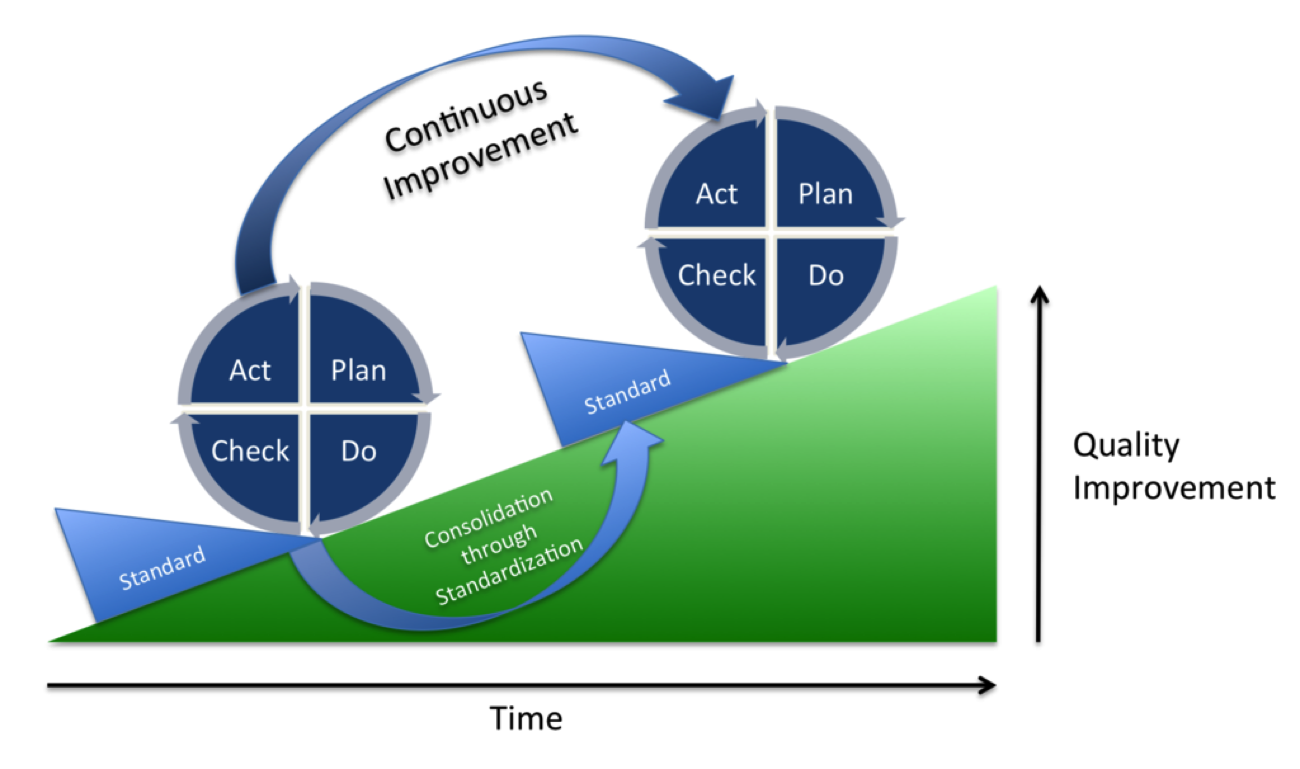To engage is Continuous Improvement is to be always making improvements along a production line. Specific ways digital solutions and IIoT can contribute to Continuous Improvement include: Helping you take action on main production problems so you can quickly improve profitability; positioning you to carry out real-time monitoring, which makes it easy to view data collected from your machines in one or many factories; and enabling you to monitor overall equipment effectiveness by tracking rejects, availability, efficiency and quality. Approaches like these can also empower your team with tangible steps and real deadlines and you to set benchmarks for excellence.
How can this happen in practical terms? Enter “Plan Do Check Act (PDCA,)” also known as the Deming Cycle, or the Shewhart Cycle.
In a company looking to adopt digital technology into its plants, the PDCA Cycle can be used with digital to successfully implement pilot programs. Its cyclical style makes it ideal for incorporating small changes into different iterations of tests, allowing great flexibility when starting a new improvement project.
When you have located a downtime problem event along your manufacturing production line, have logged the problem within your monitoring software and the reason for it, the next step is to build an action plan that lays the groundwork for clear solutions.
PDCA Cycle—Four Steps Toward Continuous Improvement
- Plan: Pinpoint an area for focus, and create an action plan
- Do: Carry out a small-scale test of the change’s effectiveness
- Check: Analyze the results and identify actionable insights from the test
- Act: If the test yielded positive outcomes, implement this knowledge for wider changes. If not, go back to the beginning of the cycle and begin again from Plan.
The simple framework is a practical approach for small problems. It can be used for streamlining a repetitive work process, developing a new product, process or service, or as a proof-of-concept for larger ideas. PDCA is also good for planning structures to collect and analyze data from a series of tests to identify issues and their causes.
Worximity is deeply committed to the philosophies of Continuous Improvement and Lean Manufacturing in food manufacturing. Using our IoT technology we provide company wide visibility into the statistics that matter to manufacturers and accelerate TTV (Time to Value) of investments in company culture and training to achieve outstanding productivity.
For comprehensive information about how Continuous Improvement in manufacturing developed and how it works, visit the following:
Techniques
Statistical Process Control (SPC)
Six Sigma
Lean Manufacturing
Total Quality Management (TQM)
Continuous Improvement in Food Manufacturing
Implementing Continuous Improvement in Food Manufacturing
















